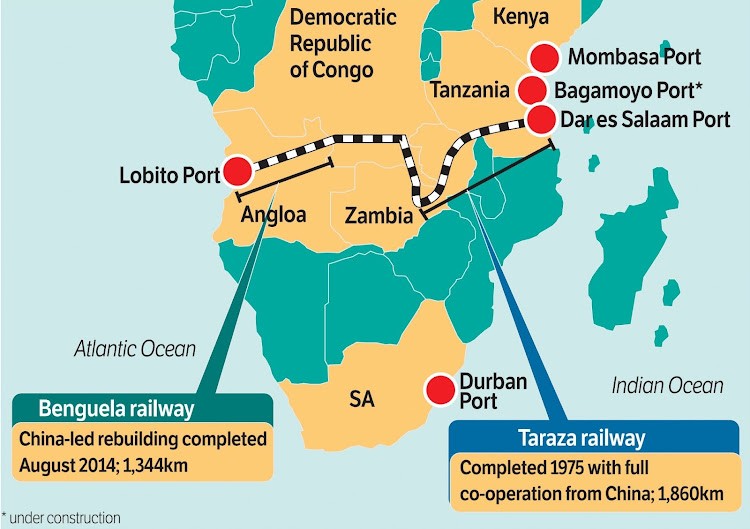Summary by Geopolist | Istanbul Center for Geopolitics:
China’s profound influence in Angola illustrates Beijing’s overarching strategy in Africa, utilizing infrastructure investments to establish a substantial presence and obtain vital resources. Following the conclusion of Angola’s civil war, China has poured billions into the development of railways, highways, and energy projects, thereby cementing its position in Angola’s economic framework. Nonetheless, the U.S. is introducing an alternative vision: the Lobito Corridor, a significant railway infrastructure initiative linking Angola to Zambia through the Democratic Republic of the Congo (DRC). This corridor, of strategic importance for the transportation of essential minerals, is designed to establish a trade route from Angola’s Atlantic coast across the continent to the Indian Ocean.
Sub-Saharan Africa contains approximately 30% of the world’s proven critical mineral reserves, such as cobalt and copper, which are essential for the renewable energy and technology sectors. The implications are significant. The commitment of the U.S. and the European Union to revitalizing the Lobito Corridor through the refurbishment of Angola’s Benguela Railway and the construction of new lines in Zambia has the potential to diminish Western reliance on supply chains dominated by China.
The U.S. aims to establish a dependable corridor for the extraction and export of essential minerals by modernizing the 1,344km Benguela Railway and building new rail lines in Zambia, thereby improving Western access to resources crucial for technology, green energy, and economic resilience. The region contains approximately 30% of the world’s verified critical mineral reserves, highlighting its significant importance. The initiative led by the U.S. to strengthen the corridor is a component of a wider strategy aimed at diversifying supply chains and diminishing dependence on Chinese control in resource markets.
This competition signifies more than just infrastructure; it marks a new chapter in the geopolitical struggle for influence in Africa. The Lobito Corridor provides the West with a chance to ensure resource access while offering African nations alternative partnerships, which could diminish China’s influence over local economies. If successful, this corridor could signify a change in regional power dynamics, indicating to African nations that they have alternatives to China for investment and development—a change that could diversify their economic dependencies.
The competition between the U.S. and China in Angola underscores Africa’s increasing significance in global resource security, trade, and development. Africa’s significance as a geopolitical chessboard is highlighted, with major powers competing not just for resources but also for influence in moulding the future of essential global industries, establishing the continent as a key participant in the 21st-century economy.
Read more here.







